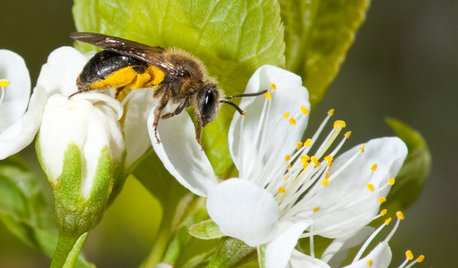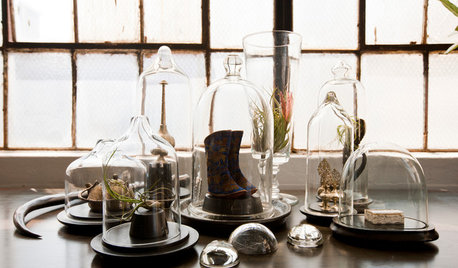Bee's and honey combs...sad story :(
wilted_flower
18 years ago
Related Stories

FARM YOUR YARDHello, Honey: Beekeeping Anywhere for Fun, Food and Good Deeds
We need pollinators, and they increasingly need us too. Here, why and how to be a bee friend
Full Story
GARDENING FOR BUTTERFLIESGardening for the Bees, and Why It’s a Good Thing
When you discover how hard bees work for our food supply, you may never garden without them in mind again
Full Story
EARTH DAYHow to Design a Garden for Native Bees
Create a garden that not only looks beautiful but also nurtures native bees — and helps other wildlife in the process
Full Story
GARDENING GUIDESInvite Mining Bees to Your Garden by Planting Their Favorite Plants
Look for mining bees (Andrena) pollinating woodland wildflowers in U.S. gardens this spring
Full Story
EDIBLE GARDENSA Formerly Weedy Lot Now Brims With Edibles and Honeybees
Photographers transform their barren backyard into an oasis filled with fruit, vegetables, honey, eggs and more
Full Story
FURNITURE10 Secrets of Successful Secondhand Furniture Shopping
Design professionals offer tips on how, where and what to buy
Full Story
DECORATING GUIDESSo Your Style Is: Curiosity-Cabinet Chic
Create an uncommon mood that whispers of adventure by showing off your treasures in an intriguing way
Full Story
GARDENING FOR BUTTERFLIESGarden for Wildlife to Reap Rich Rewards
When you plant with animals and insects in mind, you make gardening easier, the planet healthier and yourself more present
Full Story
BEFORE AND AFTERSA ‘Brady Bunch’ Kitchen Overhaul for Less Than $25,000
Homeowners say goodbye to avocado-colored appliances and orange-brown cabinets and hello to a bright new way of cooking
Full Story
FARMHOUSESWorld of Design: See How 9 Families Live and Farm on Their Land
Join us as we visit the homes and farms of passionate food producers and hear about rural life around the globe
Full Story





wilted_flowerOriginal Author
Konrad___far_north
Related Professionals
Arlington Landscape Architects & Landscape Designers · Bridgetown Landscape Architects & Landscape Designers · Birmingham Landscape Architects & Landscape Designers · Severn Landscape Architects & Landscape Designers · East Patchogue Landscape Architects & Landscape Designers · Goodyear Landscape Contractors · Salem Landscape Contractors · Barrington Landscape Contractors · Blue Springs Landscape Contractors · Brookline Landscape Contractors · Brownsville Landscape Contractors · Coram Landscape Contractors · Pine Hills Landscape Contractors · Watertown Landscape Contractors · Lauderdale Lakes Landscape Contractorshoofhearted
Oyster123
Konrad___far_north
ccrb1
hoofhearted
zip_nye_pa_net